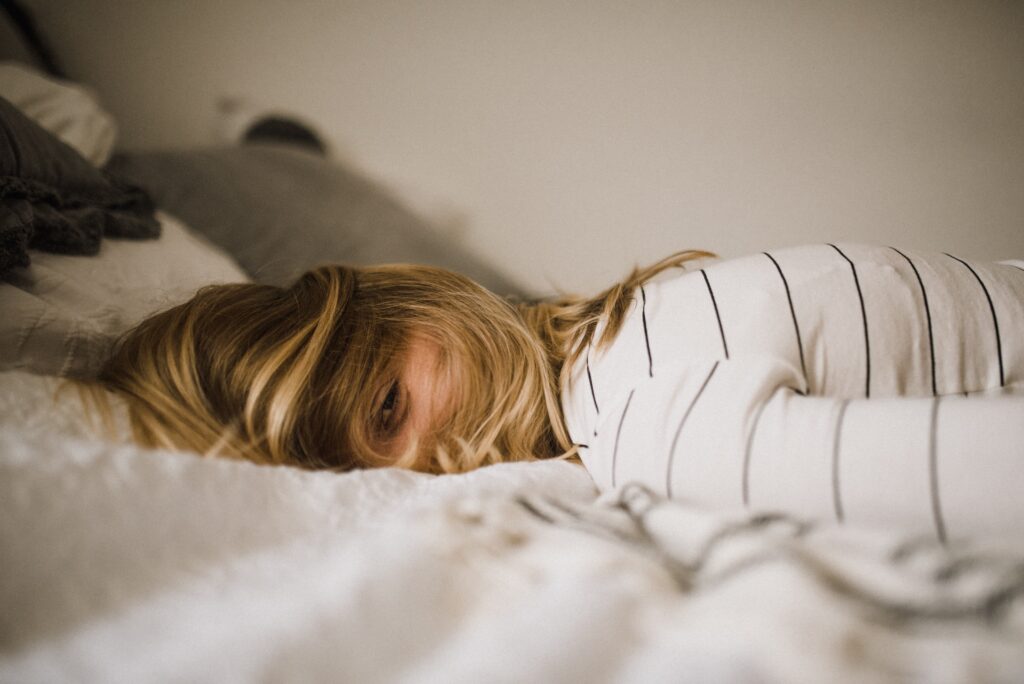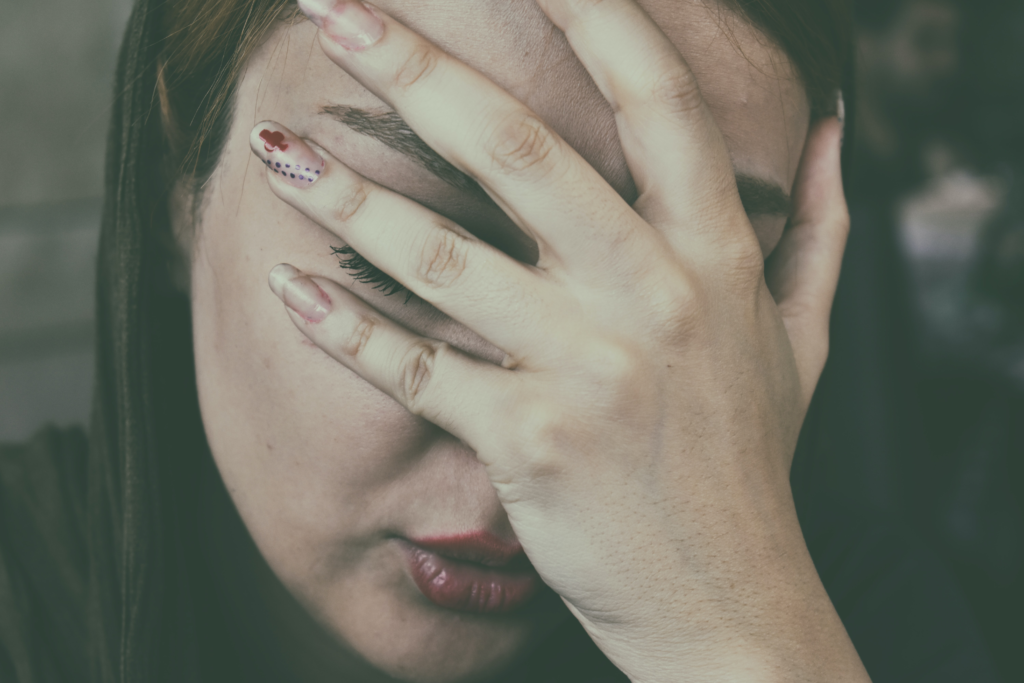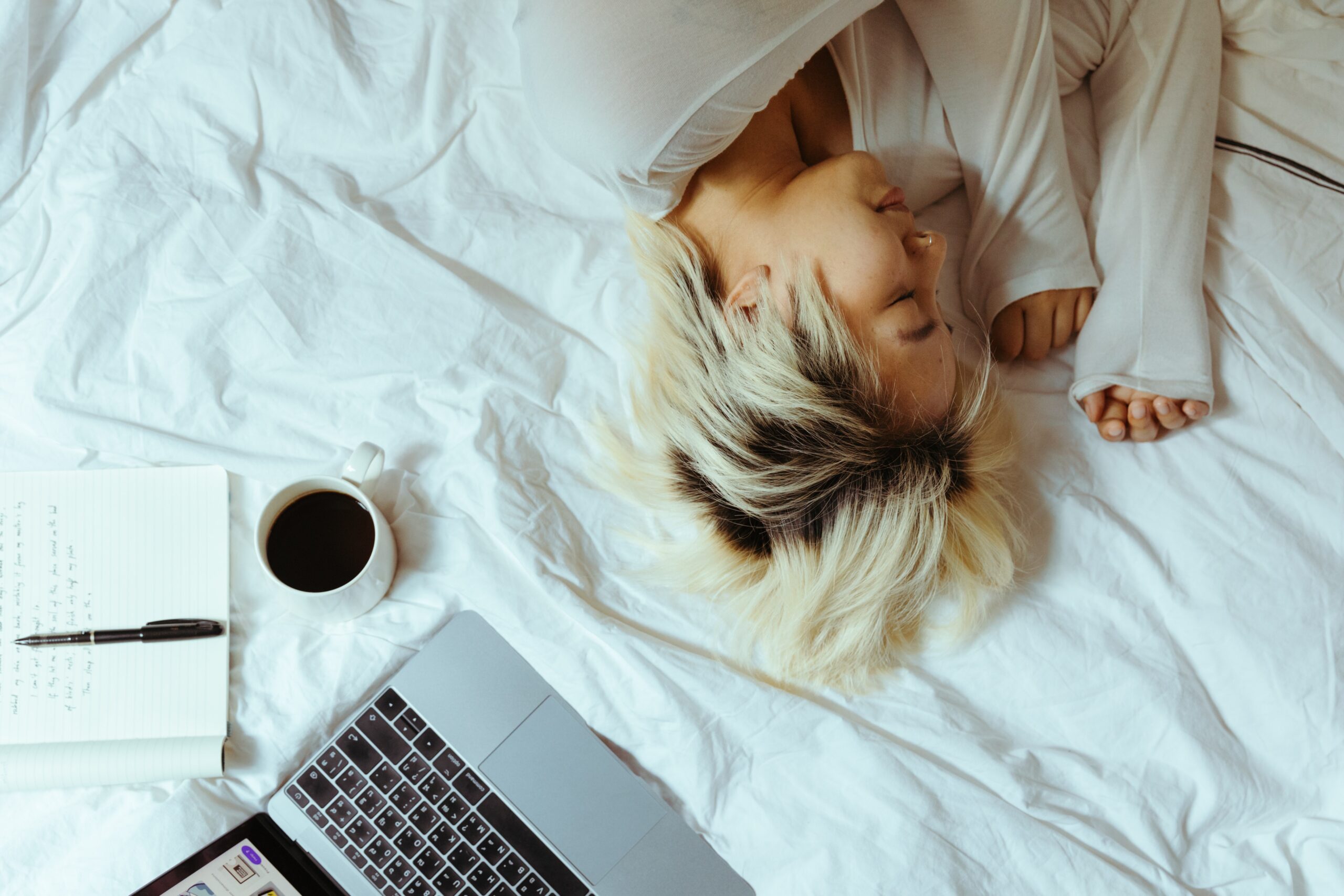If you’ve ever been confused by your eyelids getting heavy after sipping a steaming mug of coffee, you are not alone. Surprisingly, coffee- a beverage renowned worldwide for its energy-boosting effects – can, in some individuals, have the complete opposite effect.
This paradoxical reaction occurs due to the complex interaction of caffeine, the primary stimulant in coffee, with our body’s biochemistry. While caffeine acts as an adenosine receptor antagonist, blocking the sleep-inducing effects of adenosine, it also stimulates the release of other neurotransmitters such as dopamine and adrenaline. This promote wakefulness. However, some people may have a genetic variation that alters how their bodies process caffeine, leading to a different response. In these cases, instead of feeling energized, the caffeine can induce a sedative effect, making them feel sleepy.
To understand more, we’re going to dive into the biological mysteries that make coffee a yawn-inducing drink for some people.
So, next time you find yourself nodding off after your morning brew, you’ll know exactly why your cup of ‘wake up’ is acting more like a ‘tuck in’. Stay tuned to unravel the enigma of why coffee makes some people sleepy.

Can coffee put you to sleep?
While it is not common, coffee can indeed induce sleepiness in certain people due to a variety of biological and psychological reasons. But remember, it is not the norm. For most people, a cup of coffee will more likely keep you awake, than put you to sleep.
How could this be?
- Surplus of Adenosine: Firstly, we need to understand the mechanism of action of caffeine, the active compound in coffee. Caffeine works primarily by blocking adenosine receptors in the brain. Adenosine is a neurotransmitter that gradually accumulates in your brain while you’re awake and induces sleepiness. By blocking these receptors, caffeine helps you feel alert and awake. However, while caffeine is blocking these receptors, the production of adenosine doesn’t stop. When the caffeine eventually wears off, there is a surplus of adenosine that can rapidly bind to its receptors, resulting in a sudden onset of tiredness, a phenomenon often referred to as a ‘caffeine crash’.
- Dehydration: Another factor to consider is the diuretic effect of coffee. Coffee can cause you to urinate more frequently, which may lead to dehydration. Dehydration can make you feel sluggish or tired, which might be interpreted as sleepiness.
- Individual Metabolism: Moreover, individual differences in how people metabolize caffeine can also play a role. For ‘slow’ caffeine metabolizers, the stimulant effects of coffee might be less pronounced and wear off more slowly, leading to a feeling of relaxation or even sleepiness.
- Psychological Impact: Lastly, there may be a psychological component. Some people have a routine of drinking coffee before naps or sleep, training their brain to associate coffee consumption with rest.
Why does coffee not work for me in keeping me awake?
It’s a common belief that coffee, teeming with caffeine, is a surefire way to banish drowsiness. Yet, some people find that their cherished cup of joe leads them straight to a yawn rather than a sprint. Let’s take a closer look at six possible reasons why coffee might be making you feel sleepy.
-
- Caffeine crash: While caffeine temporarily blocks adenosine receptors to keep you awake, the production of adenosine doesn’t cease. When the caffeine wears off, an excess of adenosine triggers a sudden onset of tiredness, often called a caffeine crash.
- Slow caffeine metabolism: People vary in their ability to metabolize caffeine. Slow metabolizers may experience the effects of caffeine over a longer period, which may paradoxically lead to feelings of relaxation or sleepiness.
- Dehydration: Coffee acts as a diuretic, prompting increased urination that can potentially lead to dehydration. Dehydration often results in feelings of fatigue and lethargy.
- Increased blood sugar levels: Coffee, particularly if consumed with sugar, can lead to a quick spike and subsequent drop in blood sugar, which can result in feelings of exhaustion.
- Caffeine tolerance: Regular coffee drinkers can build a tolerance to caffeine, making it less effective over time. As the stimulant effect diminishes, the energizing impact of coffee decreases.
- Psychological association: If you habitually drink coffee before naps or sleep, you may have conditioned your brain to associate coffee consumption with sleep, leading to a feeling of sleepiness post-coffee.

How can I minimize the side effects of coffee?
While coffee can be a wonderful pick-me-up and provide various health benefits, it’s not without potential side effects. However, you can take several steps to minimize these:
-
- Moderate your intake: The key is to find the right balance. For most healthy adults, moderate caffeine intake, roughly 3-4 cups of coffee a day, is generally recognized as safe.
-
- Stay hydrated: To combat the potential dehydrating effects of coffee, make sure to drink plenty of water throughout the day. This can help prevent feelings of fatigue and headaches associated with dehydration.
-
- Limit added sugars: High levels of sugar can lead to energy crashes, not to mention added calories. Try to consume your coffee black, or use healthier sweetener alternatives like stevia or honey.
-
- Monitor your caffeine tolerance: If you notice that the effects of caffeine are diminishing or causing sleep disruption, it might be time for a tolerance break. Abstain from or significantly reduce your caffeine intake for a while.
-
- Choose decaf or half-caf: If you’re sensitive to caffeine but still love the taste of coffee, opt for decaf or half-caf varieties. This can help you enjoy your favorite beverage without the unwanted side effects of caffeine.
-
- Pay attention to timing: Avoid drinking coffee late in the day to prevent sleep disturbances. As a general rule, it’s best to stop consuming caffeine 6 hours before bedtime.
-
- Healthy lifestyle habits: Balanced nutrition, regular exercise, and adequate sleep can help mitigate potential negative effects of coffee. These lifestyle habits can also boost your overall energy levels, reducing your need for caffeine.
Remember, everyone reacts differently to caffeine. Listen to your body and adjust your coffee consumption accordingly to minimize any adverse effects.

What are the withdrawal symptoms of coffee?
Caffeine, the active ingredient in coffee, is a central nervous system stimulant, and regular consumption can lead to physical dependence. If you suddenly reduce or stop drinking coffee, you may experience caffeine withdrawal symptoms. Here are some of the most common:
- Headaches: This is one of the most commonly reported withdrawal symptoms and is thought to occur due to an increase in blood flow to the brain as caffeine’s vasoconstrictive effects wear off.
- Fatigue: Caffeine increases alertness by blocking adenosine receptors. Without it, adenosine can bind unimpeded, leading to feelings of tiredness or fatigue.
- Irritability and mood changes: Many people report feeling irritable, anxious, or depressed during caffeine withdrawal.
- Difficulty concentrating: Without the stimulant effects of caffeine, you may find it more difficult to concentrate or maintain focus.
- Drowsiness or grogginess: Increased sleepiness or a general sense of being “foggy-headed” can occur during caffeine withdrawal.
- Flu-like symptoms: Some people may experience nausea, vomiting, or muscle aches and stiffness.
- Insomnia: Ironically, even though caffeine withdrawal can make you feel tired, it can also disrupt your sleep patterns and cause insomnia.
These symptoms typically begin 12 to 24 hours after discontinuing caffeine, peaking within the first two days, and can last all the way up to nine days. The severity of symptoms can vary depending on individual factors like daily caffeine intake, tolerance levels, and metabolism speed.
Conclusion
Coffee’s sleep-inducing effect, an unusual reaction experienced by a subset of individuals, can be attributed to various factors. These include the eventual wear-off of caffeine, inducing a relative lull in energy; the activation of adenosine receptors once caffeine’s effects subside; and the diuretic properties of coffee, which can cause dehydration and fatigue.
Additionally, consuming coffee may stimulate the release of serotonin, promoting feelings of calm and sleepiness. Individual physiological differences and tolerance to caffeine can also influence one’s response. Understanding these factors helps explain why coffee might, paradoxically, make some people sleepy.




